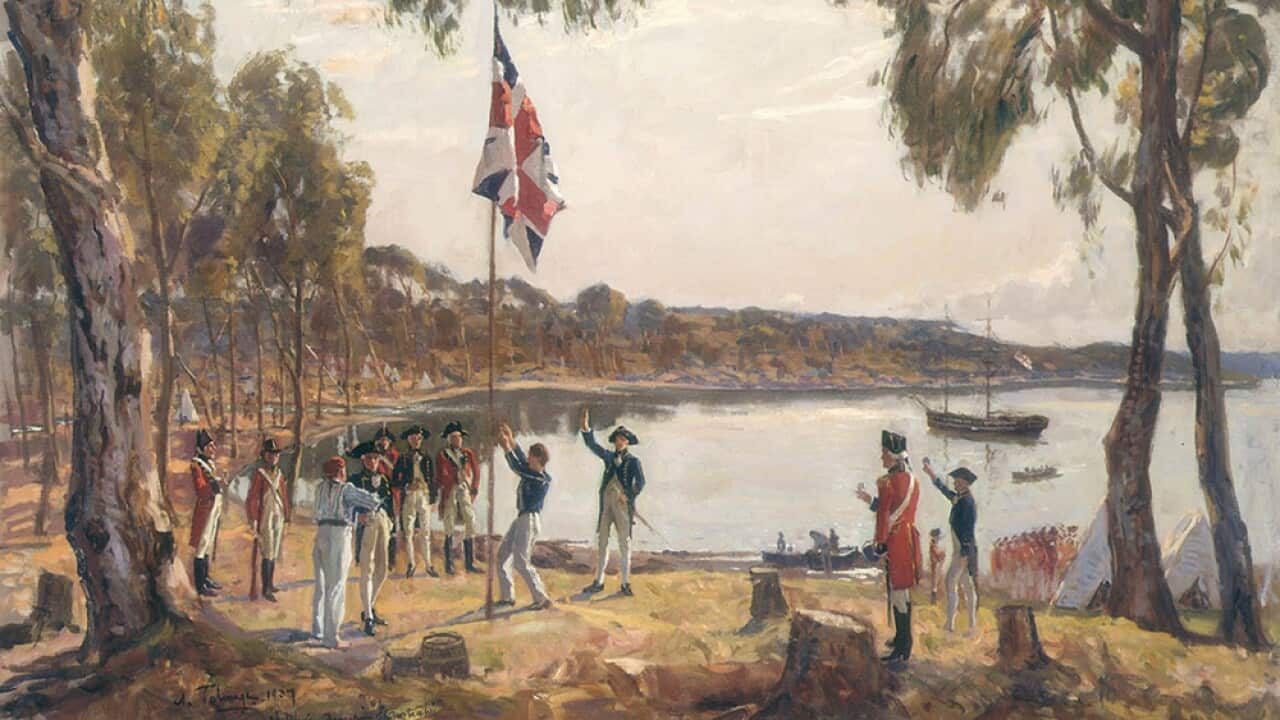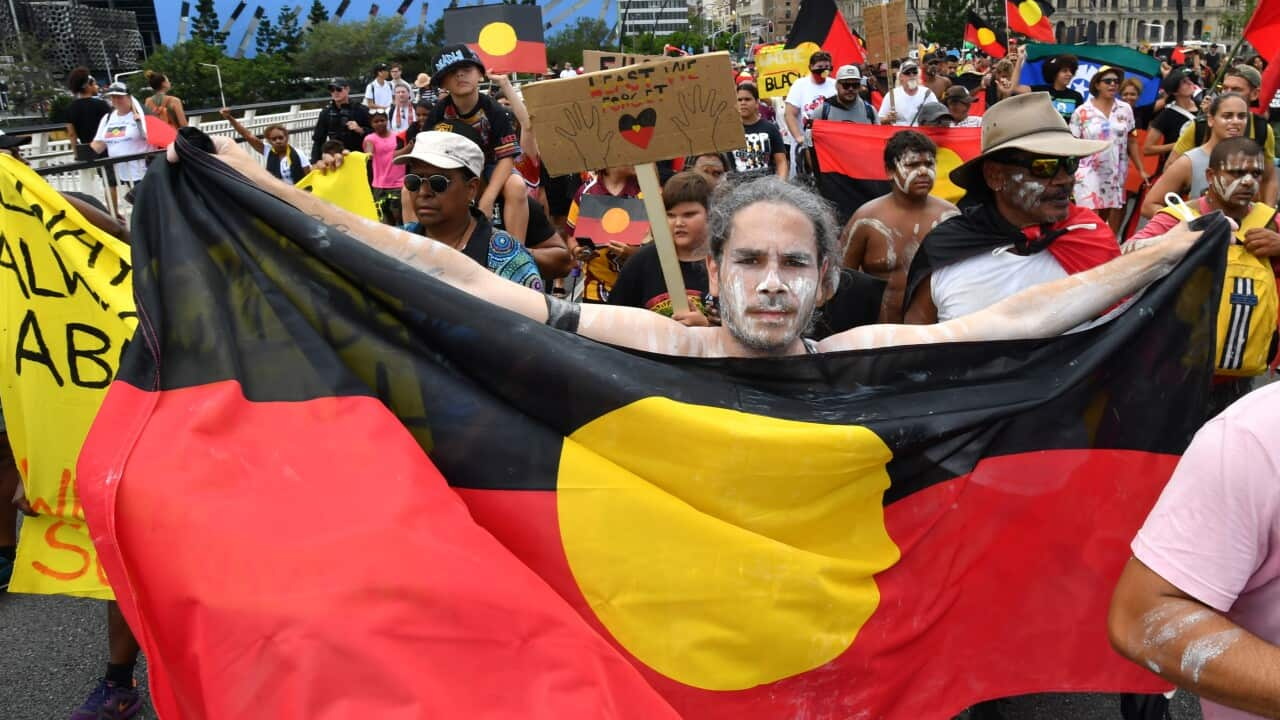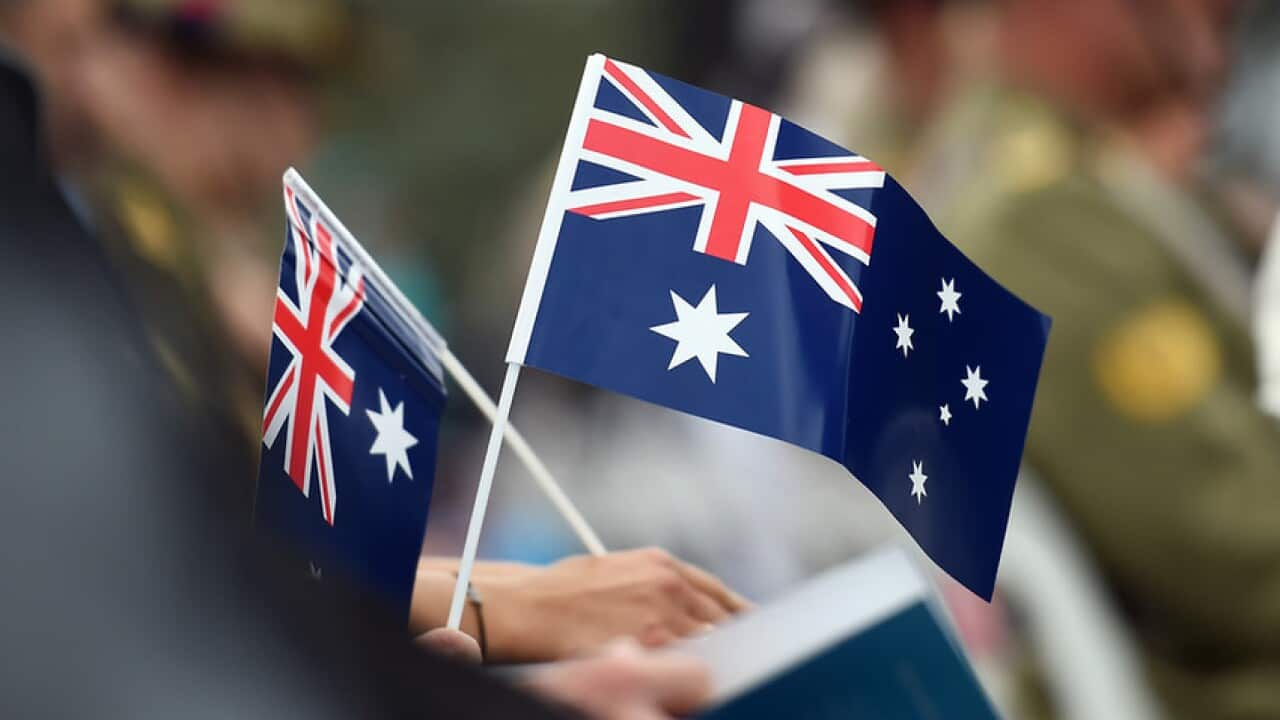Key Points
- Peter Dutton has encouraged Australians to boycott Woolworths.
- His comments come after Woolworths announced that it would not stock additional Australia Day merchandise.
- There have been increased calls for Australia to change its national day in recent years.
Federal Opposition leader Peter Dutton has told Australians to boycott Woolworths following its decision not to sell Australia Day merchandise, but other politicians have criticised Dutton's comments as "scoring a cheap political point".
Woolworth says it won't be stocking the items because of low customer interest.
Dutton said he would boycott the supermarket chain in an interview with 2GB radio on Thursday. During the interview, Dutton described Woolworths' decision as an "outrage".
"If I want to go into Woolworths and purchase all of the paraphernalia to celebrate Australia Day with my next-door neighbours or my family or my mates, well that's something that I should be able and [am] entitled to do," he said.
"Other companies haven't done it (stopped selling Australia Day merchandise) and on that basis, I think Australians should boycott Woolworths."
"For Woolworths to start taking political positions to oppose Australia Day is against the national interest, the national spirit.
"And most Australians, I think, just want to go to Woolies and get groceries at the cheapest possible price because a lot of them are struggling to pay the bill when they get to the checkout at the moment."

Many people are rethinking the significance of Australia Day and what it means to the community, Woolworths said. Source: AAP / Dan Himbrechts
"He's out there fighting yet another culture war, talking about what kind of products that supermarkets sell," he told reporters on Thursday.
One Nation leader Pauline Hanson said, "big business has now set its sights on attacking Australia Day".
Greens MP for Brisbane Stephen Bates wrote on X: "Party that claims to love the free market and hate 'wokeism' suddenly huge fan of direct intervention and boycotts."
In a statement released on Monday, which SBS News has obtained, a spokesperson for Woolworths Group, which includes Woolworths and BIG W, said the group would not be stocking items specific to Australia Day in 2024.
"While Australian flags are sold within BIG W all year round, we don't have any additional themed merchandise available to purchase in-store in our supermarkets or BIG W ahead of Australia Day," the spokesperson said.
They explained that there had been a "gradual decline in demand for Australia Day merchandise" from their stores in recent years, amid "broader discussion about 26 January and what it means to different parts of the community".

The Woolworths Group, which includes Woolworths supermarkets and BIG W, announced it would not stock additional Australia Day merchandise ahead of 26 January. Source: AAP / Mick Tsikas
A growing trend
Woolworths isn't the first Australian retailer to stop selling Australia Day merchandise. In 2023, Kmart confirmed that it would no longer sell Australia Day merchandise in any of its stores.
A spokesperson for Woolworths said: "With food at the heart of our grocery business, our focus is on offering customers food and produce for all occasions, including Australia Day."
SBS News understands Aldi will not stock any Australia-themed products in its Special Buys range ahead of the 26 January public holiday.
Coles, Woolworths' leading competitor, will continue to sell Australia Day merchandise.
A spokesperson for Coles said: "We are stocking a small range of Australian-themed summer entertaining merchandise throughout January which is popular with our customers for sporting events such as cricket and tennis, as well as for the Australia Day weekend."
Why is 26 January so controversial?
Australia Day is held on 26 January, marking the day British ships arrived at what is now known as Sydney Cove in NSW in 1788 and raised the Union Flag for the first time.
For many First Nations people, the day is one of , as it marks the start of Britain's violent invasion and colonisation, the impacts of which are still felt among First Nations people.
There has been increasing support for among the wider Australian population, in acknowledgement of opposition from Indigenous groups, with many referring to it as Invasion Day or Survival Day.
- With additional reporting by AAP




